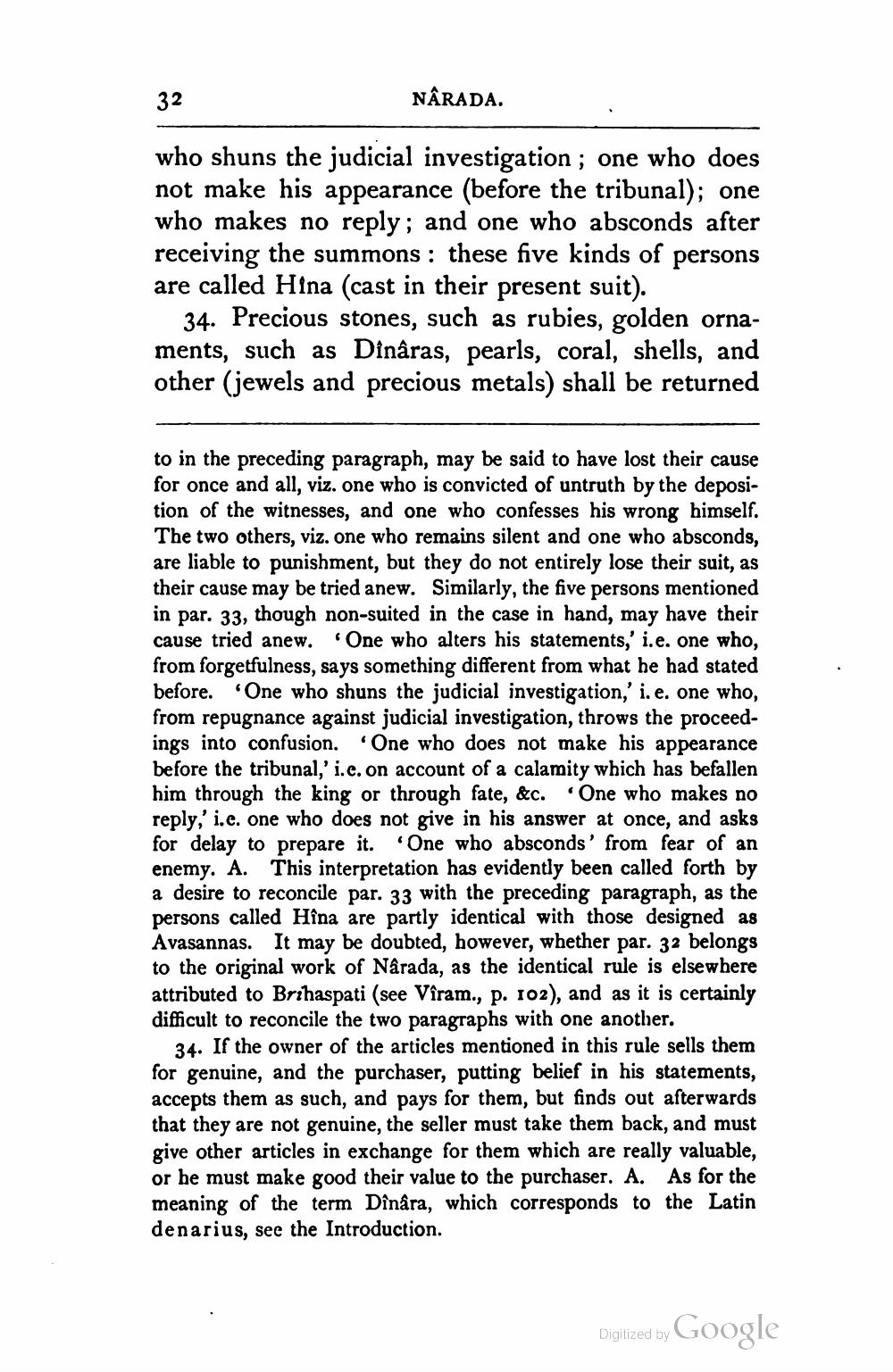________________
32
NARADA.
who shuns the judicial investigation ; one who does not make his appearance (before the tribunal); one who makes no reply; and one who absconds after receiving the summons: these five kinds of persons are called Hina (cast in their present suit).
34. Precious stones, such as rubies, golden ornaments, such as Dinâras, pearls, coral, shells, and other (jewels and precious metals) shall be returned
to in the preceding paragraph, may be said to have lost their cause for once and all, viz. one who is convicted of untruth by the deposi
witnesses, and one who confesses his wrong himself. The two others, viz. one who remains silent and one who absconds, are liable to punishment, but they do not entirely lose their suit, as their cause may be tried anew. Similarly, the five persons mentioned in par. 33, though non-suited in the case in hand, may have their cause tried anew. One who alters his statements,' i.e. one who, from forgetfulness, says something different from what he had stated before. One who shuns the judicial investigation,' i.e. one who, from repugnance against judicial investigation, throws the proceedings into confusion. One who does not make his appearance before the tribunal,' i.c. on account of a calamity which has befallen him through the king or through fate, &c. One who makes no reply,' i.e. one who does not give in his answer at once, and asks for delay to prepare it. One who absconds' from fear of an enemy. A. This interpretation has evidently been called forth by a desire to reconcile par. 33 with the preceding paragraph, as the persons called Hîna are partly identical with those designed as Avasannas. It may be doubted, however, whether par. 32 belongs to the original work of Nárada, as the identical rule is elsewhere attributed to Brihaspati (see Vîram., p. 102), and as it is certainly difficult to reconcile the two paragraphs with one another.
34. If the owner of the articles mentioned in this rule sells them for genuine, and the purchaser, putting belief in his statements, accepts them as such, and pays for them, but finds out afterwards that they are not genuine, the seller must take them back, and must give other articles in exchange for them which are really valuable, or he must make good their value to the purchaser. A. As for the meaning of the term Dînâra, which corresponds to the Latin denarius, see the Introduction.
Digitized by Google




